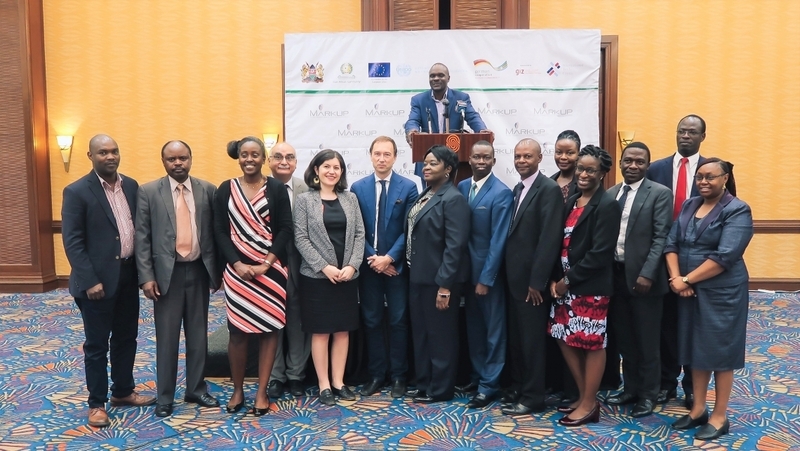
Sweden pledges extra $19m in Loss and Damage Fund
Sweden pledges additional $19 million to the Loss and Damage Fund at the 29th United ...

The European Union-funded program – at 3.7 million euros – is meant to improve the competitiveness of small-scale farmers in 12 counties of Kenya.
The United Nations Industrial Development Organization (UNIDO) will implement the four-year ‘Market Access Upgrade Program (MARKUP)’which aims at strengthening the extension services; promoting the concept of good agricultural practices and compliance requirements for better market access; and building the capacity of the inspection, testing and certification systems to address the gaps along the entire supply chain of the identified products.
This will lead to increases in the quality and volume of the produce; at the same time, this will enhance the competitiveness of Kenyan agriproducts to access markets; generate more foreign exchange; and improve the socio-economic conditions of the farmers.
Currently, Kenya’s horticulture is mainly exported to the European Union (45 percent of the country’s exports); the project will be implemented in partnership with the International Trade Center (ITC) and the German Technical Cooperation (GIZ) and, at regional level, with the East African Community (EAC). Nationally, UNIDO will work with different stakeholders including the Kenya Plant Health Inspectorate Services (KEPHIS), the Horticultural Crops Directorate (HCD), the Kenyan Bureau of Standards (KEBS) and the Ministry of Agriculture, Livestock and fisheries.
In Kenya, agriculture (crop and livestock production) contributes to an average of 27.3 percent of the national GDP and provides a source of livelihood to most Kenyans. It also contributes about 26 percent indirectly to GDP through linkages with other sectors such as agro-based manufacturing, transport, wholesale and retail trade.
The MARKUP Program aims to enhance market access and competitiveness of Kenya’s plant-based products through the adoption of relevant international standards and improved food-safety regulation and enforcement in Kenya. Under the project, small scale farmers and SMEs from 12 counties will receive capacity building along selected value chains (green beans, snow peas, chilies, mango, passion fruits, macadamia, ground nuts, herbs and spices).
In addition, services provided by national institutions such as the Kenya Plant Health Inspectorate Service (KEPHIS) and the Horticultural Crops Directorate (HCD) and the Kenya Bureau of Standards (KEBS) will be strengthened. This will ensure that all the agricultural exports meet the market requirements for both the export and domestic markets and are safe for public consumption.
As part of the program, UNIDO will also work with the private sector such as Fresh Produce Exporters Association of Kenya (FPEAK) and the Fresh Produce Consortium of Kenya (FPC Kenya). Currently, the share of several Kenyan agricultural products such as green beans, peas and nuts to international and regional markets is shrinking owing to poor quality and safety standards. Specific concerns include high levels of pesticide residues beyond set legal limits, poor hygiene and harmful organisms on produce.
The MARKUP Program is a Euro 35 million initiative funded by the European Union (EU) as part of the 11th European Development Fund. The MARKUP project aims to contribute to the economic growth of the East African Community (EAC). More specifically, it aims to support increased exports of agribusiness and horticultural products, promote regional integration as well as access to European markets.
MARKUP assists small and medium-sized enterprises (SMEs) in Burundi, Kenya, Rwanda, Tanzania and Uganda by targeting specific agricultural commodities.
Sweden pledges additional $19 million to the Loss and Damage Fund at the 29th United ...
New Chief Executive Officer (CEO) DHL Express in the Middle East and North Africa(MENA) Abdulaziz ...
Lindt & Sprüngli has already achieved a reduction in its carbon footprint in transportation, with ...


اترك تعليقا